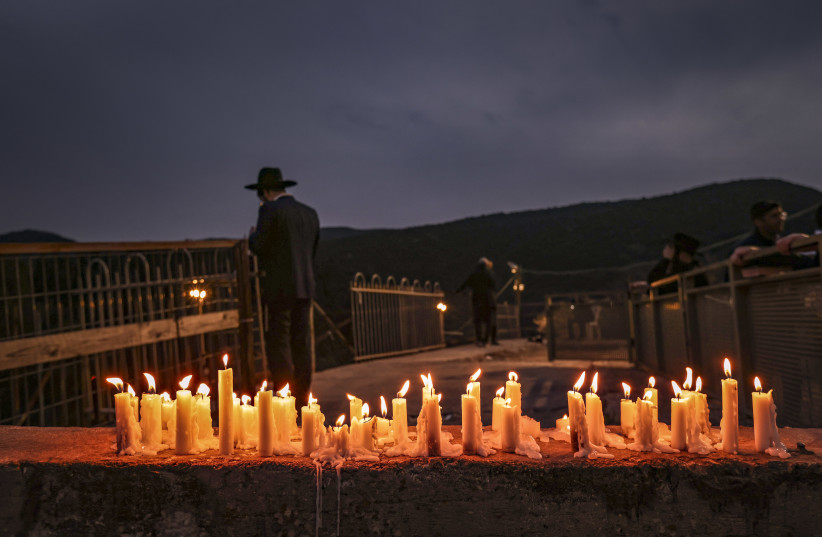Israel Police Commissioner Kobi Shabtai – in coordination with the Public Security Ministry – ordered an investigation into what happened at the funeral on Friday of Shireen Abu Akleh.
In videos and images that went viral around the world, policemen in masks and riot gear charged pallbearers carrying her casket and beat them with batons and bats. It was horrific to watch and came as Israel was being accused around the world of killing the renowned Al Jazeera journalist.
It was as if someone in the high echelons of power in Israel decided that the accusation that the IDF killed Abu Akleh to silence her critical journalism didn’t cause enough damage for the Jewish state: More was needed.
Masked police officers faced scores of flag-waving and chanting Palestinians in the compound of St. Joseph’s Hospital in east Jerusalem, television footage showed.
Then they charged the crowd – and at one point, the group carrying her coffin backed against a wall and almost dropped the casket, recovering it just before one end hit the ground. The funeral in Jerusalem was interrupted after Israeli forces confiscated Palestinian flags hoisted by Palestinians at the funeral, held in a Jerusalem church near Jaffa Gate.
What happened at the funeral will be probed now by the police with a focus on the question of why they felt that violence was even needed. Sadly, the Israel Police is not exactly an organization that can be trusted.
Anyone who has been following the police in recent years knows this. The organization is weak, understaffed and underpaid, and its ranks are filled with people who sometimes make one wonder how they were hired to begin with.
The clashes at the funeral came just days before Israel marks the holiday of Lag Ba’omer on Wednesday night, as well as the first anniversary of the Meron disaster where 45 people were killed in a tragic stampede at the mountaintop gravesite of the second century sage Rabbi Shimon Bar Yochai.
According to the government, the number of people allowed at the site will be limited and strictly enforced. In addition, structural changes have been made to prevent similar disasters from occurring in the future.
What is troubling though is that a year after 45 people were killed, no one in the police or the government has stepped down or taken responsibility for what happened last April. Forty-five fathers, sons, brothers and husbands were killed because of bad decisions and negligence but no one has stepped forward and accepted the blame.
Instead, Shabtai is still in his role, as is Northern District Chief Shimon Lavi and Yosef Schwinger, director general of the National Center for the Development of Holy Places that operates the tomb.
Instead of taking responsibility, Lavi and Shabtai have played the blame game. During his testimony before the state commission investigating the disaster, the police commissioner said that Lavi was responsible. While Lavi has taken responsibility, he has claimed that it does not mean he is to blame.
This situation is ridiculous, but then again it also explains how violence can break out at Abu Akleh’s funeral. The police are not managed. A managed and responsible police force would have stopped tens of thousands of people from visiting Meron last year and would have banged on the table and warned that it could not ensure their safety. A responsible police would have stayed away from Abu Akleh’s funeral, knowing that images of violence as Israel is fighting a global war for legitimacy is something that cannot happen. A responsible police would have known how to prevent that.
Sadly, a responsible police force is not what Israel has – and there is little doubt that change is needed, first and foremost at the top. Shabtai needs to be replaced as does Lavi. When that happens, a lesson will be taught of accountability and responsibility. Forty-five people should not be allowed to die without change. Sensitive events like Abu Akleh’s funeral are not allowed to go on without the police understanding that they need to behave differently.
A state commission of inquiry is currently investigating the Meron disaster. We hope they finish their probe soon and do not shy away from the necessary recommendations.
It is time for change: It is time to revamp the Israel Police.

